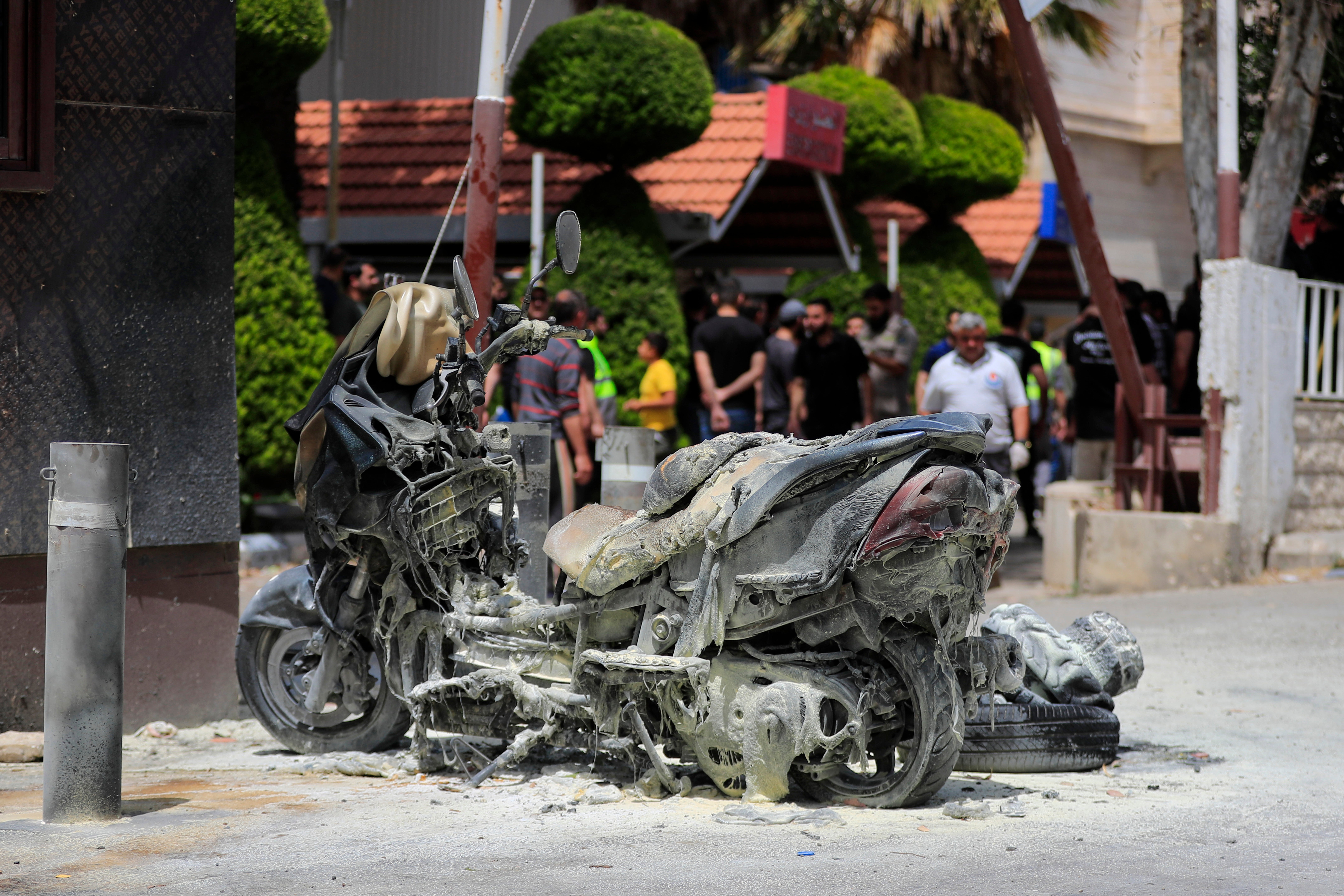Officials say an Israeli strike in southern Lebanon kills two people near a hospital
Health officials say an Israeli strike targeting a motorcycle in southern Lebanon has hit next to a hospital entrance and killed two people — the motorcycle driver and a hospital security guard

Your support helps us to tell the story
From reproductive rights to climate change to Big Tech, The Independent is on the ground when the story is developing. Whether it's investigating the financials of Elon Musk's pro-Trump PAC or producing our latest documentary, 'The A Word', which shines a light on the American women fighting for reproductive rights, we know how important it is to parse out the facts from the messaging.
At such a critical moment in US history, we need reporters on the ground. Your donation allows us to keep sending journalists to speak to both sides of the story.
The Independent is trusted by Americans across the entire political spectrum. And unlike many other quality news outlets, we choose not to lock Americans out of our reporting and analysis with paywalls. We believe quality journalism should be available to everyone, paid for by those who can afford it.
Your support makes all the difference.An Israeli strike targeting a motorcycle in southern Lebanon hit next to a hospital entrance Monday, killing the motorcycle driver and a hospital security guard and wounding several civilians nearby, local health officials said.
It was not immediately clear who the driver was or why he was targeted in the strike in the town of Bint Jbeil.
The Israeli army did not give a statement on the strike but said it had targeted other areas of southern Lebanon in response to “terrorist launches.”
The Lebanese militant group Hezbollah has been exchanging strikes with Israeli forces in the border area almost daily since Oct. 8, a day after the Israel-Hamas war in Gaza began.
Mohammed Suleiman, director of the Salah Ghandour Hospital in Bint Jbeil, said they had initially received one person killed and nine wounded in the strike, most of whom were “civilians who were in front of the hospital, where family members and people accompanying the patients usually gather.”
Hospital officials later said that a security guard who was wounded in the strike had died.
The strike also caused minor damage to the hospital, an Associated Press photographer at the scene said.
Hezbollah later said it had launched a barrage of dozens of missiles at Meron, Safsufa and Kiryat Shmona in northern Israel in response.
Israeli strikes have killed more than 400 people in Lebanon since the war in Gaza began, most of them militants with Hezbollah and allied groups but also including more than 70 civilians and non-combatants. On the Israeli side, strikes from Lebanon have killed 15 soldiers and 10 civilians.
The clashes have displaced tens of thousands on each side of the border. Israeli officials have said they may launch an offensive in Lebanon if no diplomatic solution is reached that would allow the displaced to return.
The Israeli military said Monday that its reservists had in recent weeks “conducted a division-level and brigade-level exercise that simulated ground operations in Lebanon."
Hezbollah legislator Hassan Fadlallah, who visited the site of the strike in Bint Jbeil, said that Israel “will not be able to return settlers (residents) to the north in this way.”
“The only way to stop everything that is happening in the region today and on the border with Lebanon is to stop the aggression against Gaza,” he said.
Western countries, in particular the U.S. and France, have come forward with a series of proposals for a cessation of hostilities on the Lebanon-Israel border. Hezbollah has refused to enter into an agreement until a cease-fire is implemented in Gaza.
Initially, the proposals stipulated that Hezbollah would move its forces several kilometers away from the border, but a French diplomatic official who spoke on condition of anonymity to discuss the ongoing negotiations said the latest proposal has abandoned this idea as Hezbollah would not agree to it unless Israel also halted its overflights in Lebanese airspace.
Instead, the new proposal would rely on a strengthened presence of the official Lebanese army and UNIFIL peacekeeping forces in southern Lebanon to enforce the cessation of hostilities, with a long-term aim of negotiations for demarcation of the land border between Lebanon and Israel.
French Foreign Minister Jean-Yves Le Drian was expected to arrive in Beirut on a diplomatic visit Tuesday.
___
Associated Press staff writer Abby Sewell in Beirut contributed to this report.